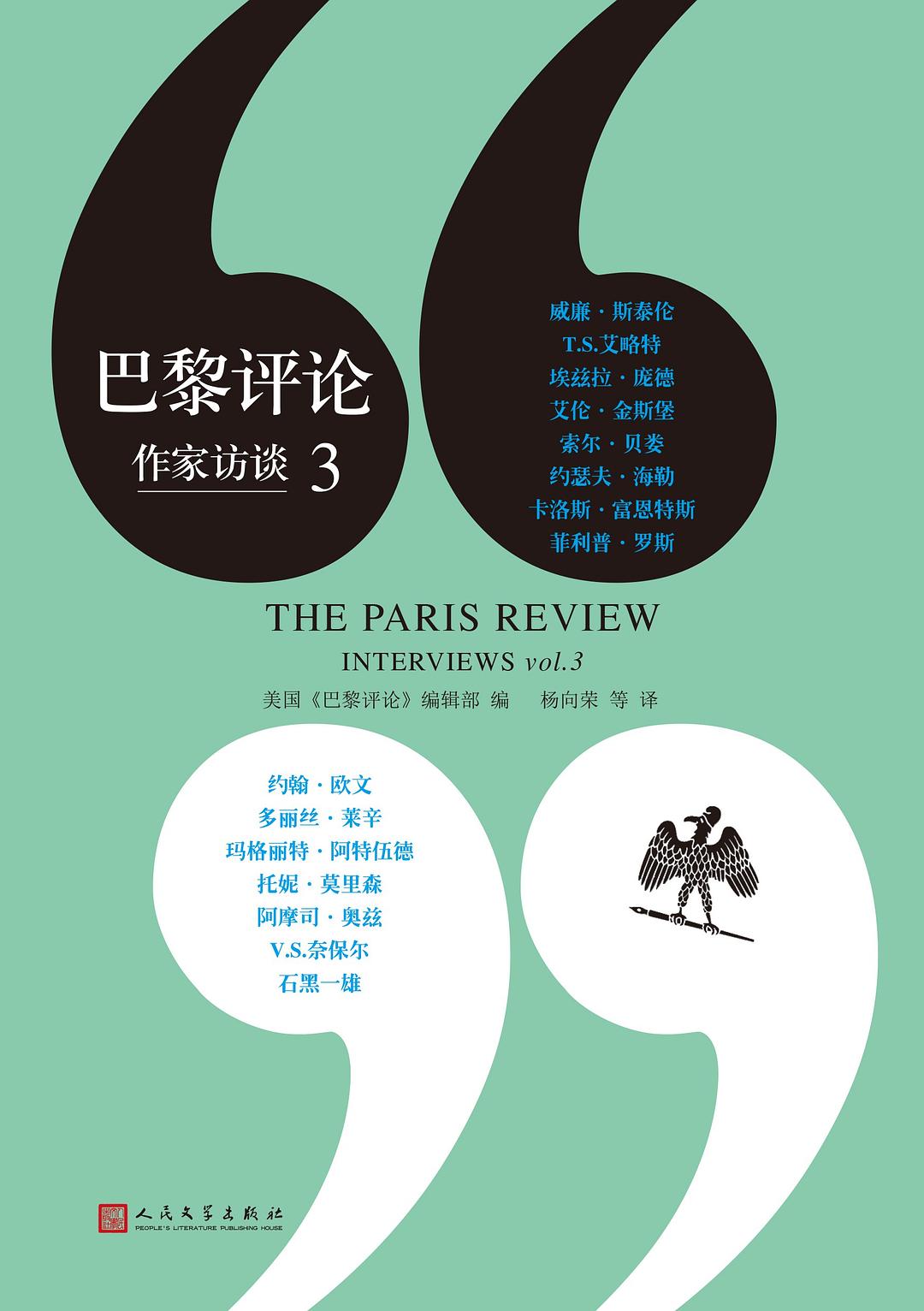Paris Review Writer Interviews 3
Paris Review Writer Interviews 3
[USA] Edited by the Editorial Department of The Paris Review
Low stock
Couldn't load pickup availability
About Book
About Book
The Paris Review: Interviews vol. 3
Douban
NeoDB
◎Margaret Atwood: The Paris Review is one of the few truly important literary magazines of the 20th century—and now of the 21st.
Ernest Hemingway: I have every issue of The Paris Review and I love the interviews there. If they were compiled into a book, it would be a great book and would also be beneficial to The Paris Review itself.
Salman Rushdie: For almost as long as I can remember, I've been captivated by the Paris Review interviews. Taken together, they constitute the best and most readily available inquiry into the question of "what literature is." In many ways, asking "what" about literature is more interesting than asking "why."
Orhan Pamuk: Whenever I got stuck while writing my first novel, I would instinctively rise from my desk and, in that smoke-filled room, reread The Paris Review interviews with Faulkner, Nabokov, Dos Passos, Hemingway, or Updike, striving to regain my faith in writing and find my own path. … Years later, after appearing in The Paris Review myself, I reread these interviews to reawaken the hopes and anxieties of my early writing. Thirty years later, I still read these interviews with the same enthusiasm I once had. I know I haven't been led astray: I feel the joys and anxieties of literature more keenly than ever.
Dave Eggers: The Paris Review interviews always offer the best insights into the minds and writing ethics of great writers. Reading them intently, alone on your couch, feels like training for an MFA creative writing program.
Colum McCain: These Paris Review interviews should be distributed at cocktail parties, readings, weddings, raves, and all sorts of other lively settings. They're also perfect for classrooms at all levels, from high school to MFA programs. In fact, I once used them for an entire semester of a creative writing course. Where else can I find the world's greatest writers and all their wisdom, absurdity, and anger, and bring them into the classroom? These interviews are fascinating, thrilling, and indispensable.
——————————————————————
"Writer Interviews" is the most enduring and celebrated feature of the American literary magazine The Paris Review. Since its inaugural issue in 1953, featuring E.M. Forster, The Paris Review has consistently published lengthy interviews with the greatest writers of our time. Initially titled "The Art of the Fiction," these interviews have gradually expanded to "The Art of Poetry" and "The Art of Criticism," encompassing over 300 articles to date, encompassing nearly every significant figure in world literature from the second half of the 20th century to the present day. Writer Interviews have become The Paris Review's signature, establishing a paradigm for this unique genre. A single interview, from preparation to execution, often spans months or even years. These interviews are not conducted to coincide with the publication of a new book, thus eschewing any commercial overtones. Writers spontaneously discuss their writing habits, methods, moments of difficulty, and literary secrets. The content is witty and possesses significant documentary value. Coupled with the anecdotes surrounding the interviews, this section has become legendary, arguably "one of the longest-running cultural dialogues in world history."
The fifteen writers interviewed in "Paris Review: Writers' Interviews 3" are: William Styron, TS Eliot, Ezra Pound, Allen Ginsberg, Saul Bellow, Joseph Heller, Carlos Fuentes, Philip Roth, John Irving, Doris Lessing, Margaret Atwood, Toni Morrison, Amos Oz, VS Naipaul, and Kazuo Ishiguro.
Publication Date
Publication Date
Publisher
Publisher
Imprint
Imprint
Pages
Pages
ISBN
ISBN
share

